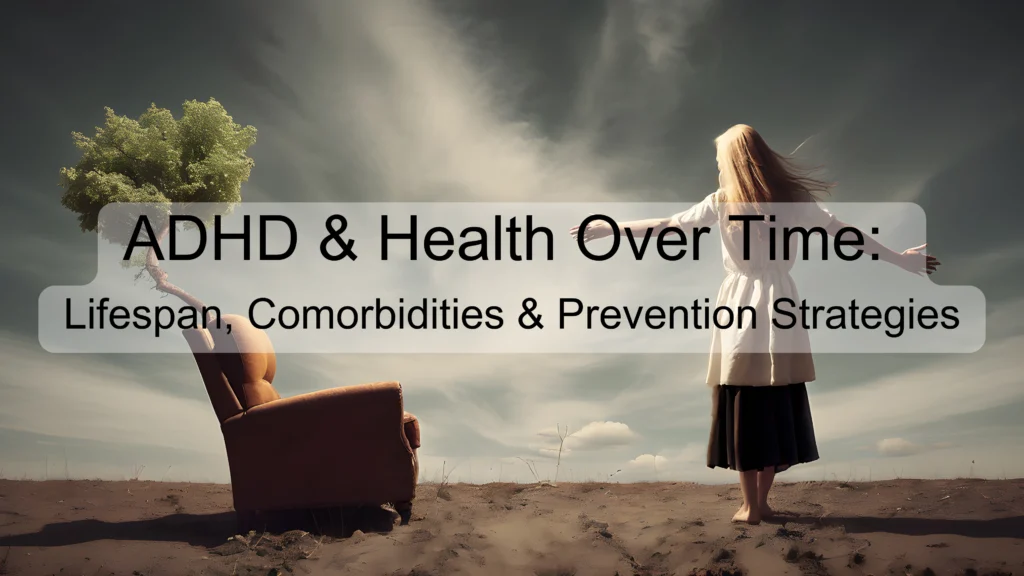ADHD & Health Over Time: Lifespan, Comorbidities & Prevention Strategies
ADHD isn’t just about attention or hyperactivity. Increasing research shows it can have profound effects on long-term health. In fact, a major study in 2025 found that individuals with ADHD face a sharply reduced life expectancy compared with those without the condition.
This is not to alarm, but to highlight why early diagnosis, treatment, and lifestyle support matter so much.
SIGN UP TO MAILING LIST
Why ADHD Affects Lifespan
The risks aren’t due to ADHD itself, but to the ripple effects:
- Accidents & injuries: Impulsivity and distractibility raise accident risk.
- Substance use: ADHD is linked with higher rates of addiction.
- Physical health: Poor sleep, sedentary lifestyle, and stress can increase heart disease risk.
- Mental health comorbidities: Anxiety, depression, and RSD (Rejection Sensitivity Dysphoria) compound challenges.
As psychiatrist Dr. Gabor Maté observes in Scattered Minds, “ADHD is not a fixed sentence but a set of tendencies that, with support, can be directed toward health and growth.”
Prevention & Proactive Care
The good news? With awareness, many risks can be reduced:
- Medication & therapy: Stabilising focus and emotions helps prevent knock-on effects.
- Exercise & nutrition: Movement and balanced eating support brain and body health.
- Sleep hygiene: Protects focus, mood, and long-term wellbeing.
- Community support: Reduces isolation, increases accountability, and improves resilience.
SIGN UP TO MAILING LIST
The Role of Connection
Loneliness is itself a health risk. Communities of support not only validate but also extend life expectancy by improving mental and physical health.
✨ ADHD is not destiny. With proactive care, people with ADHD can live long, healthy, and fulfilling lives.
Your health story with ADHD is still being written – and you have the pen.
Join the Rebuild Your Life Coaching Group to connect with others who are actively building healthier, more balanced futures with ADHD.
What to read next – The 3-Hour Work Window Method: A Lifeline for the ADHD Brain – or Just Another Productivity Hack?

